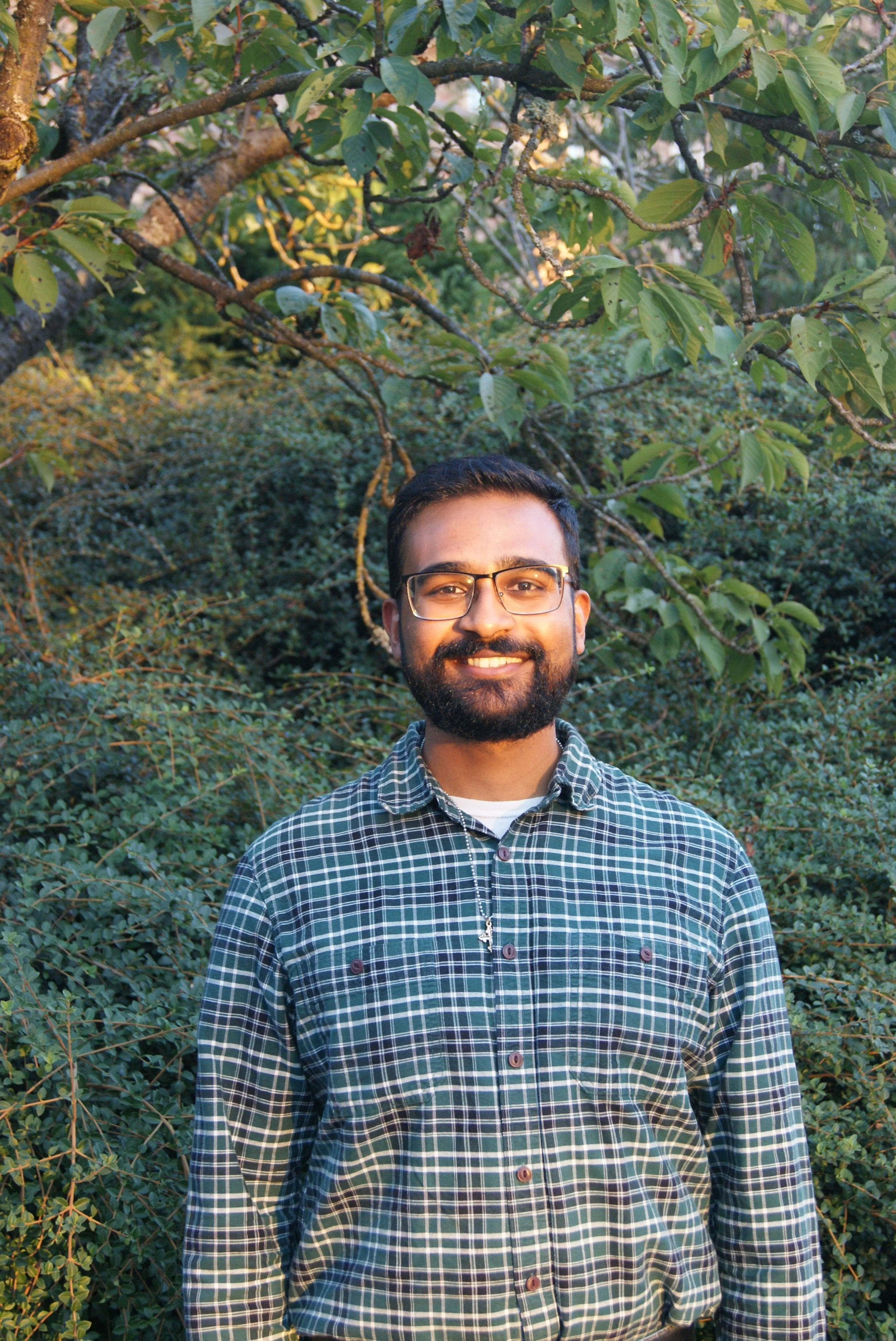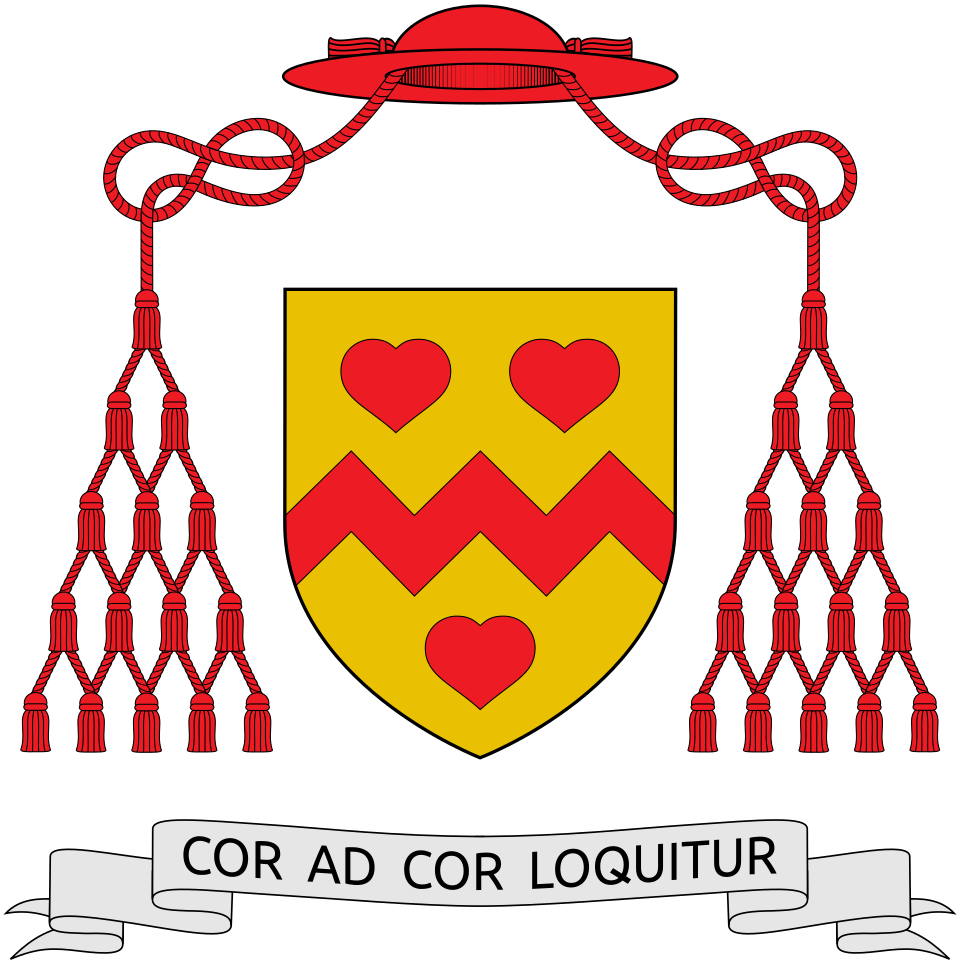Join the St. Newman Society Today!
What is the St. Newman Society? Named after our patron, St. John Henry Cardinal Newman, the St. Newman Society is an association for all who give regular financial donations to the Catholic Newman Center at the University of Washington. These regular donations, whether it is $1, $50, or more, help us continue the effort of St. Newman- to evangelize secular universities and promote the necessary relationship of faith and education.
Benefits of Enrollment: St. Newman Society members will receive special invites throughout the year to a variety St. Newman focused events and activities- starting with a special Mass on Oct. 10th at 12:35pm!
How to Enroll: To join, simply set up recurring online giving today! Use the link below.
Click to Join!
Sam is now serving as a Peer Minister at the Catholic Newman Center- a ministry program that is funded through generous donations!
Sam Abraham
When people discover that I am a convert to Catholicism and that I enjoy studying Thomas Aquinas, they often assume that my initial conversion was due to some profound intellectual enlightenment: not so. In fact, I entered the Catholic Church for a quite unintellectual reason: the girl I liked was Catholic. This is not the worst reason to become Catholic, but I certainly was no St. Augustine. Fortunately for me, the Holy Spirit worked tirelessly to claim me for His own, to love God for His own sake. I entered my sophomore year intellectually convinced of Catholicism and longing for a life in Christ.
But here began a dark, turbid period in my life. For I was a Catholic among English department academics: some sneered at religion, others had been wounded by the church, even others saw the faith as a curio rather than a living religion. What’s more, they were all quite intelligent. To their criticisms I had no retort. I knew that the Church was right, but I did not quite know how.
Against the intellectuals of the 18th and 19th centuries, haunted by materialism and skepticism, championed by my peers, G.K Chesterton’s jolly and rotund figure stood, and drew my heart—his light and joy in Christ suffused the pages of his books as I read them. I found Orthodoxy by chance in the library of the Newman Center. Soon after, I found Cardinal Newman himself a few shelves over and devoured The Idea of a University. Later, I found peace and satiety in St. Thomas. I felt like a man who had stumbled through a dark corridor into a room lit by ten thousand chandeliers.
One might assume that this, then, is the story of how I abandoned a barren, hopeless study of English literature for the rewarding, pious study of theology. But it is not; I did not.
For I discovered that to die to the world is not to hate the world. We see this in St. Francis of Assisi who, though an extreme ascetic, urged few to fast as intensely he did, since few are called to mortification so intense. Likewise, though Chesterton wrote an entire book (charitably) repudiating H.G. Wells’ reductive view of history, the pair were very good friends. Time and again, Catholics reject the false promises of the world, only to proffer it a helping hand.
On continuing my studies, I found something further. Flannery O’Connor says that Catholics are privileged over Protestant and secular brothers because we are privy to the fullness of reality, rather than handpicked parts of it—to us, the full scope of human nature is plainly seen. And thus, she implies that Catholics ought to be the best artists, for artists do nothing other than depict this fullness. Yet, I could not stop there. I came to understand that Catholics must be the best in every scholarly pursuit—even literary criticism. For the fullness of reality is ours, and our faith does not call us to abandon even reality’s shadow, which is the material world.
Indeed, the Church does not banish other sciences from its presence. Rather, it calls all things to itself, to be ordained to its proper place. While rockets ascend into the heavens, they will never reach Heaven; while words please the ear, they can never be so delightful as the Word. For me, literature and the stories it contains will always enthrall me, but never so much as the Story of stories. Among my peers, then, I have come to be like an experienced swimmer who calls to the flailing beginners, saying, Come to the Deep—for the water is good and clear, it will buoy you up.
Motto and Shield of St. John Henry Newman
“Heart Speaks to Heart”





